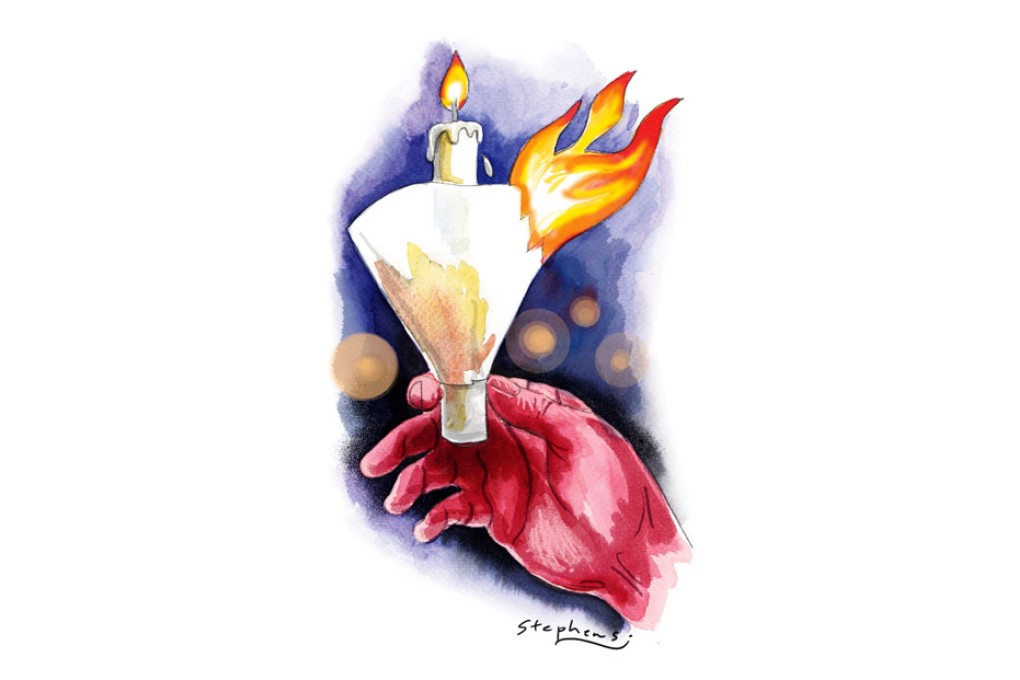Hongkongers' eternal struggle with June 4 and Chinese rule
Keane Shum says as Hongkongers reflect on the events in Tiananmen 25 years ago, the city is still wrestling with the contradictions brought about through benefiting from, and at the same time resenting, Chinese rule

The first time you go to the June 4 vigil at Victoria Park, expect to be unprepared for a number of things. The difficulty of affixing, with dripping wax, a candle to a conical paper cup. The funeral rites that without warning evince the hardest kind of loss, of a parent losing a child. And the cognitive dissonance triggered by the act of memorialising students whose deaths led in part to Hong Kong becoming the city it is today.
I was six years old in 1989. My mother worked in Hong Kong for a multinational chemical company whose business, like all business in China, evaporated after June 4. Two months later, my mother was among the first businesspeople to re-enter the mainland and attempt to resuscitate foreign trade. The deal she ultimately secured was the only one her company completed in China that year, and it set her apart from her peers and on a course of career advancement that underwrote my liberal arts and legal education. I am today able to specialise in human rights law as a result of the opportunity that the June 4 crackdown gave my mother.
This is the paradox we can never seem to escape in Hong Kong, forever and at once benefiting from and resenting Chinese - and, before that, British- rule. When the tanks rolled into Tiananmen Square, we were eight short years from the same tanks rolling across the Shenzhen River, and the predictive trauma of that moment is not only what brings many of us back to Victoria Park each year; it was what sent thousands of us to Canada, Australia and elsewhere.
And yet China today, despite its many shortcomings, is as uplifting a story as one could have hoped for 25 years ago. As my mother's career did for my education, so China's development has obviously underwritten Hong Kong's continued prosperity. Many of those who left after 1989 came back, and some will spend one night this week in a park, lighting candles and singing songs.
June 4 is far from the only trigger of our congenital cognitive dissonance. In months other than June, and years other than quarter-century anniversaries, Hong Kong seems chronically on the verge of existential crises.
The stabbing of Kevin Lau Chun-to has put our freedom of expression on death watch. The thousands of people who may or may not occupy Central in the coming months are to some a grave threat to our rule of law; to others, they are the last stand for the democracy we were promised. Our ever-shrinking harbour makes even our name increasingly obsolete, and a child urinating on the street or in the MTR - and the videotaped backlash - portends the end of all common decency. We are becoming, so we fear, just another Chinese city.
